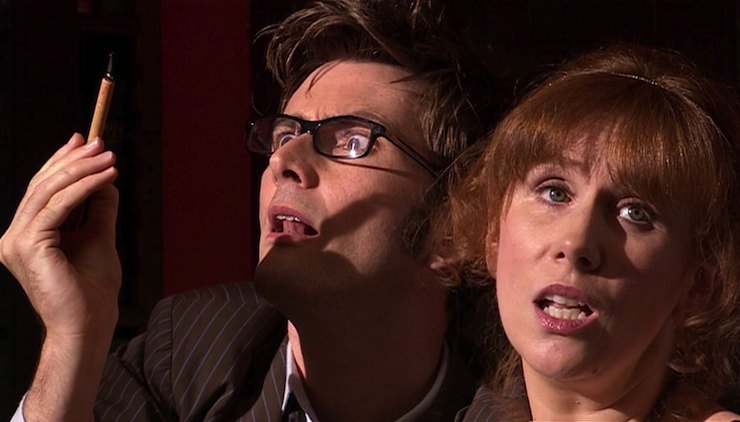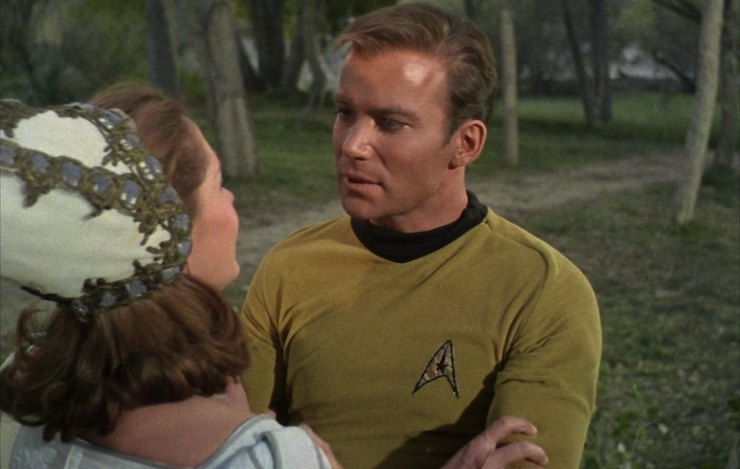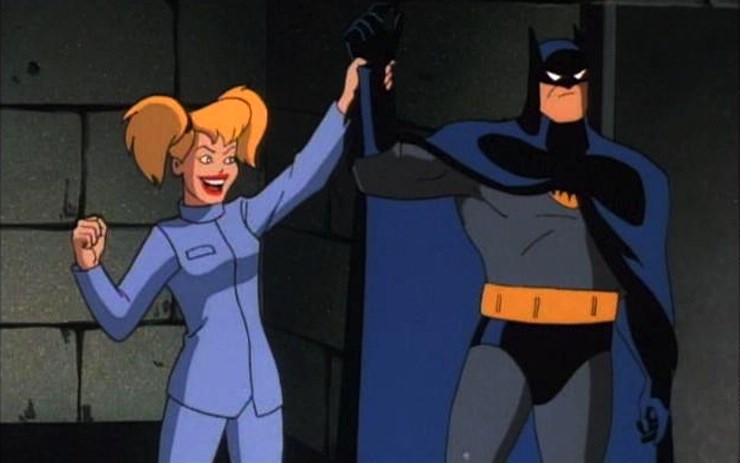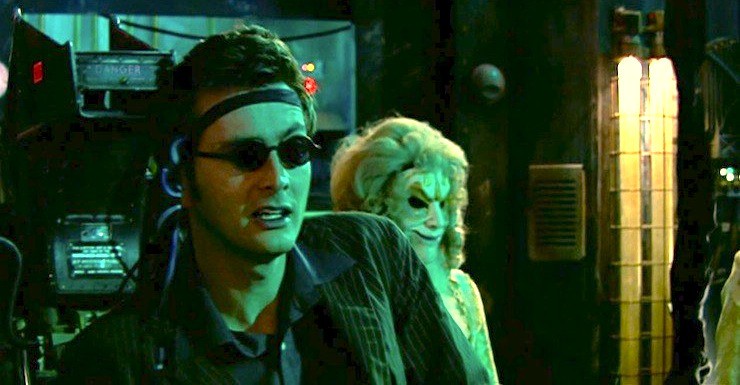Ever have a conversation with someone who you don’t know well, and everything is just jiving and you’ve found your new best friend? And you’re talking about how much you love this one TV show (or comic/short story collection/movie in a series), and they’re like “you know that one installment?” and you’re like “yeah!’ and they’re like “I mean, it’s just the worst one!”
…and your budding friendship is over in a matter of seconds?
In truth, this is not a deal breaker, but I feel like it’s something that people are bad at having meaningful conversations about—we don’t all love what we love for the same reasons. And fandom can exacerbate this divide and make it seem utterly insurmountable, when in reality, we all like different things from our entertainment for completely reasonable reasons.
Reasonable reasons. Heh. Say that eleven times fast.
Perfect example of this conversation: once, I was talking with a new acquaintance about Doctor Who. Our dialogue went something like this—
Person: Do you watch Doctor Who?
Me: Yes! I love Doctor Who!
Person: Me too! Who’s your favorite Doctor?
Me: Ten, for sure.
Person: Me too! I loved his last season with Donna, but they need to stop making episodes like “Unicorn and the Wasp.” It was awful, episodes like that just ruin the show for me.
Me: *feels a kettle boil over in my brain* *tamps down overprotective instinct* *tries to think of something benign to say* Oh… really? I love that episode.
Person: Really? Wow, you might be the first person I’ve ever known to say that.
Me: *boggles*
You might have guessed from there, but our conversation petered out awkwardly, and we never saw each other again. (It was at a public event, so it’s not like I was expecting to become bar crawl buddies or anything like that. Do people have bar crawl buddies? That sounds like a thing.) Frankly, I have plenty of friends who have differing opinions when it comes to the entertainment we consume, and it doesn’t really bother me. I will argue vigorously for the things I love, and expect them to do the same if the mood takes them. But it’s definitely a conversation-killer when it comes up with someone you barely know because it often feels like you accidentally stepped into a fight.

And that’s probably because there’s a level of cognitive dissonance that comes from hearing someone say that one of your favorite things is one of their least favorite things. I, for one, adore camp and slapstick and outrageousness, even if it’s at odds with the relative tone of a thing. (In fact, I might like it more if said piece of media is known for being serious and smart.) If Doctor Who didn’t have wild episodes like “Unicorn and the Wasp” or “The Long Game,” I would love it much less. If Farscape hadn’t contained gems like “Revenging Angel” and “Won’t Get Fooled Again,” it would never top my favorite television list. If the Original Series of Star Trek hadn’t offered up episodes like “Shore Leave” and “The Squire of Gothos” in its very first season, if Star Trek IV: The Voyage Home never existed, it wouldn’t hold such a revered place in my heart.
Same goes for production value. I know so many people who will cite “I just hated the look of it” as Reason #1 for disliking something. That approach is utterly alien to me—if I don’t mesh with the art style of a comic, I’ll still read if I’m enjoying the story. If sets are bare, I hardly notice (though I should probably blame early exposure to black box theatres for that). When people tell me they can’t watch “old movies” for the lower quality in effects, my eyes glaze over. The look of a thing is always entirely secondary to its story for me. I’m aware that this is entirely a preference issue, and also that it’s governed by my brain; I’m auditory over visual pretty much every time, and that probably dictates how much I care about visual realism at the end of the day.

Actors have this affect on people all the time. You know the argument: “I wanted to like this, but I just can’t stand Blank McFamous-Person.” I’ve got a few of those myself, and I’m pretty sure everyone does. But celebrity culture also means that we tend to be real protective over actors that we adore, so when someone can’t stand your fave, it feels like someone threw a citrus-y cocktail in your face. A citrus-y cocktail with jalapeños in it. (I once had a history teacher try to tell me that Mark Hamill was a bad actor, and I came so very close to vaulting over my desk and erasing everything he’d written on the blackboard in useless fury. To be fair, I was fifteen at the time.)
This all enters into particularly interesting territory when you take a look at our current culture of reboots and reimaginings. What’s your favorite version of Batman? Because there are easily more than a dozen different versions of the Caped Crusader between comic eras, film, and television. If you like it darker than dark, you’ve got the Nolan Trilogy and Frank Miller. If you’re devoted to camp, Adam West and Batman: Brave and the Bold is here for you. If you like your Batman somewhere in the middle tone-wise, gruff but still capable of working alongside a Boy Wonder, the Animated Series has you covered.

But more importantly, a person’s favorite version of Batman tells you something about them. To each their own, but if someone tells me that Miller’s Batman is the only way to go, I tend to steer clear of the conversation altogether. (It’s Batdad or nothing on my end. And he’ll always sound like Kevin Conroy in my head.) So in a way, these forms of cognitive dissonance can do us all a favor. They make it easier to choose how and why we engage, whether it’s to have a conversation about the merits of gritty reboots, or to avoid explaining for the umpteenth time that you happen to love puns in dialogue, please and thank you.
The most important takeaway is ultimately this: people don’t love what you love for the reasons that you love it. I mean, someone out there does (and when you find them, you should make them a friendship bracelet from indestructible rope or move in together—your mileage may vary on that one), but the world is full of people who are looking at all the same things you are looking at… from the opposite side of a sizable chasm. At worst, you’re never going to see eye-to-eye, and at best, they’ve got something interesting to teach you.
Either way, it makes talking at parties a valuable exercise—if only to make you recognize why you love what you love in the first place.
Emmet Asher-Perrin is going to change her name to Blank McFamous-Person legally. You can bug her on Twitter and Tumblr, and read more of her work here and elsewhere.










